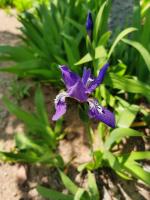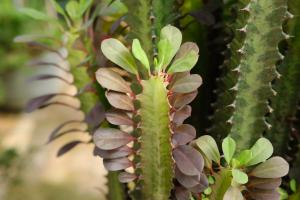What is a Joshua Tree Plant?
Joshua tree (Yucca brevifolia) is an unusual-looking plant that belongs to the yucca family. The plant is native to the southwestern United States, particularly in the Mojave Desert, and can be found in parts of California, Arizona, Nevada, and Utah. It is named for the biblical figure, Joshua, due to its arms raised towards the sky, resembling the image of Joshua waving his arms in prayer.
Physical Characteristics of Joshua Tree Plant
The Joshua tree plant can grow up to 50 feet tall and 2-3 feet thick. It has spiky, green leaves arranged in a spiral pattern at the end of the branches. The branches can grow to form a symmetrical, rounded crown, or they can twist and turn in various directions. In the spring season, the Joshua tree plant produces clusters of bell-shaped flowers that are greenish-white in color. Its fruits are oval-shaped green or brown-colored that are about two and a half inches long, which are edible, with a hint of sweetness.
The Importance of Joshua Tree Plant
Joshua tree plant holds cultural and ecological significance, predominantly in the Mojave Desert region. It serves as a home to various desert animals such as rats, birds, and insects, and herbivores such as bighorn sheep and desert tortoises. Moreover, Joshua tree plant is used by native people for traditional medicinal purposes. The fruit of the plant drove some species towards extinction. The Joshua tree plant is essential as it has been listed as a threatened species by the International Union for Conservation of Nature due to habitat destruction over the past few years.
The Joshua Tree National Park
The Joshua Tree National Park is situated in southeastern California, covering an area of over 790,000 acres. Established in 1994, it is home to a large population of Joshua trees, as well as over 550 species of plants, animals, and birds. Over 2.5 million people visit the park annually to explore the geological formations, hiking trails, and stunning desert scenery.
Threats to Joshua Tree Plants
The Joshua tree plants face several threats, primarily human activities such as land development, climate change, and drought. The increase in temperature due to climate change affects the Joshua trees, making them vulnerable to disease and increasing the frequency and severity of wildfires.
Conclusion
Joshua tree plant is a unique and essential species of the yucca family, serving both cultural and ecological significance. Its extraordinary structural features, vital ecological role in the Mojave Desert, and the threat of extinction make it a significant species to recognize and preserve for future generations.

 how many times do yo...
how many times do yo... how many planted tre...
how many planted tre... how many pine trees ...
how many pine trees ... how many pecan trees...
how many pecan trees... how many plants comp...
how many plants comp... how many plants can ...
how many plants can ... how many plants and ...
how many plants and ... how many pepper plan...
how many pepper plan...
































